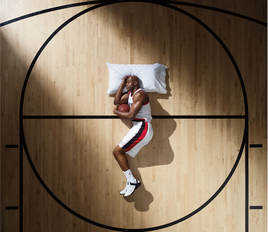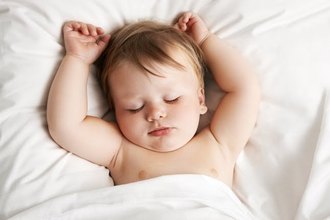The relationship between sleep, post exercise recovery and performance in elite athlete has become a topic of great interest in the sports science and medicine community. We all know that recovery is multifaceted, but do we ever even consider the importance of sleep in recovery from exercise. Amongst the timed nutrition, the compression shorts, the cryospa, and other modalities that claim to enhnce our recovery, does the notion of 40 winks ever feature in our recovery programme?
Well, if it hasn’t before, you need to address it now. Sleep deprivation alters performance but there is also some evidence to state that certain sleeping patterns are conducive to positive athletic performance. (Shapiro, 1981). Sleep is the period that is properly recognised as the time when the body gets to “restore”. (Shapiro, 1981). Restoration and recovery – don’t they go hand in hand?
Elements such as the amount of sleep, the quality of sleep, as well as the timing of your night’s sleep are factors that play a role in an athlete’s ability to train, maximise the training response, recover and ultimately perform. There is also a wealth of evidence to suggest that lack of sleep can lead to a higher injury risk and a reduction in reaction times (Shapiro, 1981). A reduction in proprioception has also been proposed (retrieved from “The secret to Teen athletes might be their sleep, Dallas News). Combining a reduced reaction time and a decrease in balance may leave our tired athletes more prone to injury.
So here’s some handy tips to facilitate your sleeping recovery
Just to reinforce that recovery is multi-factorial. Sleeping for 8 hours is great, but don’t neglect other recovery protocols such as nutrition, hydration and conditioning. But it’s nice to know that most people’s favourite things in life – eating and sleeping - can aid your recovery!
Sweet dreams everybody
Elements such as the amount of sleep, the quality of sleep, as well as the timing of your night’s sleep are factors that play a role in an athlete’s ability to train, maximise the training response, recover and ultimately perform. There is also a wealth of evidence to suggest that lack of sleep can lead to a higher injury risk and a reduction in reaction times (Shapiro, 1981). A reduction in proprioception has also been proposed (retrieved from “The secret to Teen athletes might be their sleep, Dallas News). Combining a reduced reaction time and a decrease in balance may leave our tired athletes more prone to injury.
So here’s some handy tips to facilitate your sleeping recovery
- Aiming for 7-9 hours per night Watson et al, 2015
- Obtaining at least 8 hours is essential in preventing neurobehavioural deficits such as concentration difficulties, fatigue, emotional lability, irritability and appetite disturbances (Van Dongen et al, 2003) – imagine a toddler without their nap in an athlete, scary!!
- The darker the better – black out blinds, no screens (yes, I do mean turn off your phone!)
- Separate sleep and work space – no PC or work in bedroom. Watch TV/screens/iPads in a separate space
- Move alarm clock out of sight
- Avoid alcohol, caffeine and high sugar foods prior to sleep. If eating late at night, which most athletes need to do if their sessions are in the evenings, walk for 20 minutes prior to sleeping
- Room temperature – not too hot, not too cold. Approx. 16-20 degrees!
Just to reinforce that recovery is multi-factorial. Sleeping for 8 hours is great, but don’t neglect other recovery protocols such as nutrition, hydration and conditioning. But it’s nice to know that most people’s favourite things in life – eating and sleeping - can aid your recovery!
Sweet dreams everybody
References
- Shapiro, C.M (1981). Sleep and the athlete. British Journal of Sports Medicine, 15(1), 51-55
- Van Dongen HP, Maislin G, Mullington JM, Dinges DF (2003). The cumulative cost of additional wakefulness: dose response effects on neurobehavioral functions and sleep physiology from chronic sleep restriction and total sleep deprivation. Sleep, 26:117-26
- The secret to teen athletes might be their sleep, Dallas News. www.dallasnews.com [accessed on 31/07/2018]



 RSS Feed
RSS Feed
